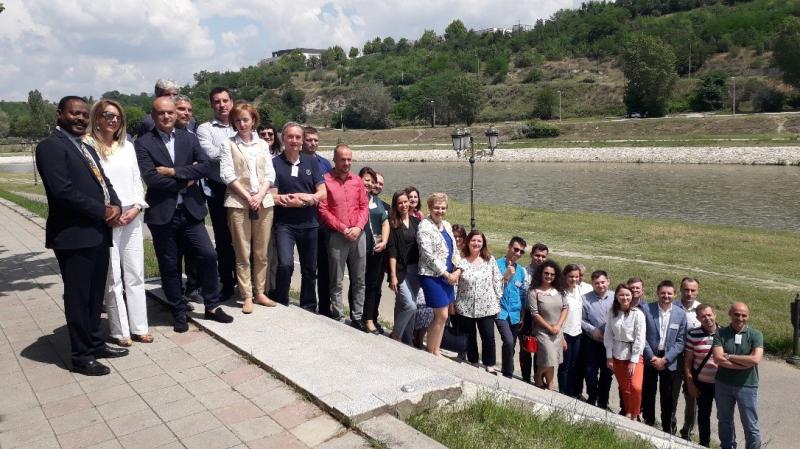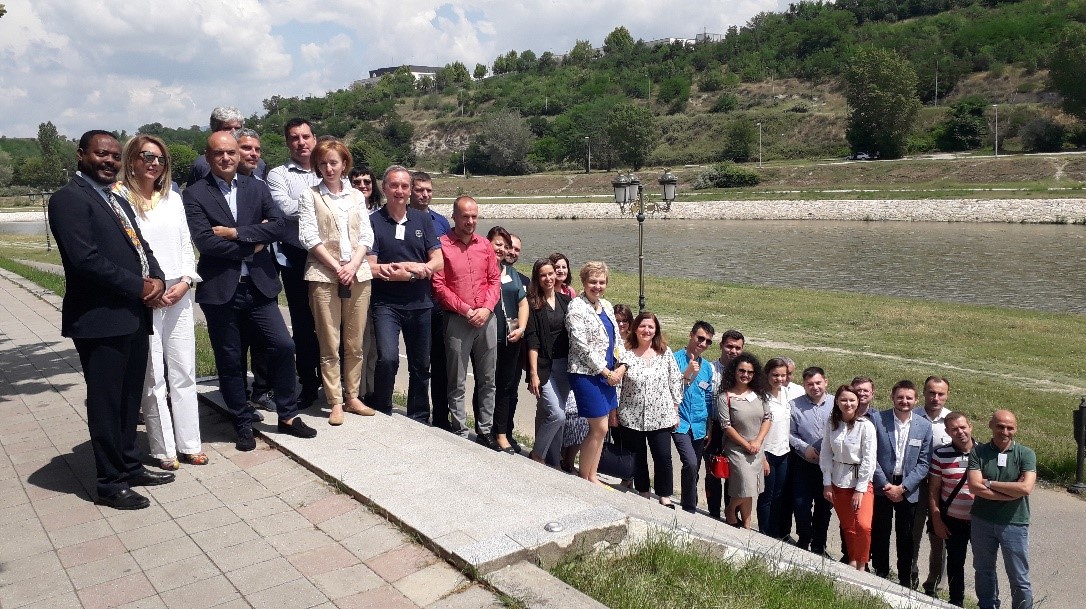
Advancing Health Emergency Preparedness, Expanding the Network of Facilitators in the Balkans
June 11, 2019
European Region
National specialists from Albania, Bosnia and Herzegovina, Serbia, Republic of Moldova, North Macedonia, Romania and Ukraine came to WHO/EURO’s Balkans priority-country hub in Skopje, North Macedonia from 11-14 June 2019 for a sub-regional training in the ongoing effort to strengthen country preparedness capacities.
The gathering brought together participants from Ministries of Health, Internal Affairs, Food and Veterinary Agencies as well the as Ministry of Emergencies.The aim was to introduce WHO methodology on components of the emergency preparedness cycle including the strategic tool for assessing risks and contingency planning for priority risks, simulation exercises, and after-action reviews under the IHR Monitoring and Evaluation Framework (IHR MEF). It also focused on providing participants with facilitation skills in rolling out these activities in their respective countries.
Health emergency preparedness in Europe means ensuring that all countries in the region can manage any type of health emergency. This is a continuous process in which action, funding, partnerships and political commitment at all levels must be sustained. It relies on all stakeholders working together effectively to plan, invest in and implement priority actions. Implementing emergency preparedness follows a continuous process: from assessing risks, vulnerabilities and capacity through establishing coordinating mechanisms, planning, financing and implementation. Through evaluation and taking corrective action, countries can target priority areas that need to be strengthened.
The 45 participants from 7 counties also shared country experiences with conducting preparedness activities through presentations, practical working groups and other networking activities.
This is the fourth training on operationalizing health emergency preparedness conducted in this region, with a focus on building the capacity of national staff in 15 priority countries.
